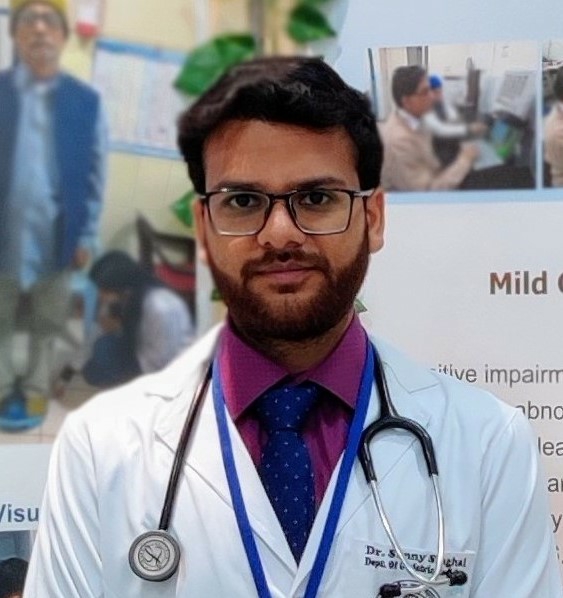Asthma, a chronic respiratory condition characterized by inflammation and narrowing of the airways, is a common health issue in Jaipur. Dr. Sunny Singhal, a renowned asthma patients doctor in Jaipur, employs a comprehensive approach to diagnose asthma effectively, ensuring that patients receive appropriate and timely care.
1. Detailed Medical History
The diagnostic process begins with a thorough medical history. Dr. Sunny Singhal asks patients about their symptoms, including frequency, duration, and triggers. Questions may cover:
1.The nature of symptoms (e.g., wheezing, coughing, shortness of breath, chest tightness)
2.Pattern of symptoms (e.g., worse at night, seasonal variation)
3.Family history of asthma or other allergic conditions
4.History of allergies or eczema
5.Past medical history and any previous treatments or medications
2. Physical Examination
A physical examination is crucial in identifying signs indicative of asthma. Dr. Sunny Singhal checks for:
Wheezing sounds during breathing
Prolonged expiration phase
Signs of allergic conditions such as nasal polyps or eczema
Overall respiratory health and potential abnormalities
3. Pulmonary Function Tests (PFTs)
Pulmonary function tests are essential in assessing lung function. The most common test used is spirometry, which measures the amount and speed of air a patient can exhale. Key spirometry parameters include:
Forced Vital Capacity (FVC): The total amount of air exhaled after a deep breath
Forced Expiratory Volume in one second (FEV1): The amount of air exhaled in the first second
FEV1/FVC ratio: Used to differentiate between obstructive and restrictive lung diseases
4. Bronchodilator Reversibility Testing
To confirm the diagnosis of asthma, Dr. Sunny Singhal may perform a bronchodilator reversibility test. After the initial spirometry, the patient inhales a bronchodilator medication. Spirometry is then repeated to see if there is significant improvement in lung function, indicating reversible airway obstruction typical of asthma.
5. Peak Flow Monitoring
Peak flow monitoring involves measuring the peak expiratory flow rate (PEFR), which helps in assessing the severity and variability of airflow obstruction. Patients may be asked to keep a diary of their peak flow readings over several weeks.
6. Allergy Testing
Since asthma is often associated with allergies, Dr. Sunny Singhal may recommend allergy testing. Skin prick tests or blood tests (such as specific IgE testing) help identify potential allergens that may trigger asthma symptoms.
7. Methacholine Challenge Test
For patients with normal spirometry but ongoing symptoms, a methacholine challenge test may be conducted. Methacholine is an agent that, when inhaled, causes airway constriction in asthmatic patients. A positive test, indicated by a decrease in lung function, supports an asthma diagnosis.
8. Imaging Studies
In certain cases, chest X-rays or CT scans may be utilized to rule out other conditions that could mimic asthma, such as chronic obstructive pulmonary disease (COPD) or structural abnormalities.
9. Exhaled Nitric Oxide (FeNO) Test
The FeNO test measures the level of nitric oxide in exhaled breath, which is often elevated in asthmatic patients due to airway inflammation. This test helps in both diagnosing asthma and monitoring the effectiveness of treatment.
Conclusion
Dr. Sunny Singhal’s approach to diagnosing asthma in Jaipur is methodical and patient-centric. By combining a detailed medical history, thorough physical examination, and advanced diagnostic tests, he ensures a precise diagnosis. This comprehensive strategy allows Dr. Sunny Singhal to tailor treatment plans effectively, helping asthma patients manage their condition and improve their quality of life. As an experienced asthma patients doctor in Jaipur, Dr. Sunny Singhal is committed to providing top-notch care to those suffering from this chronic respiratory condition.





Comments